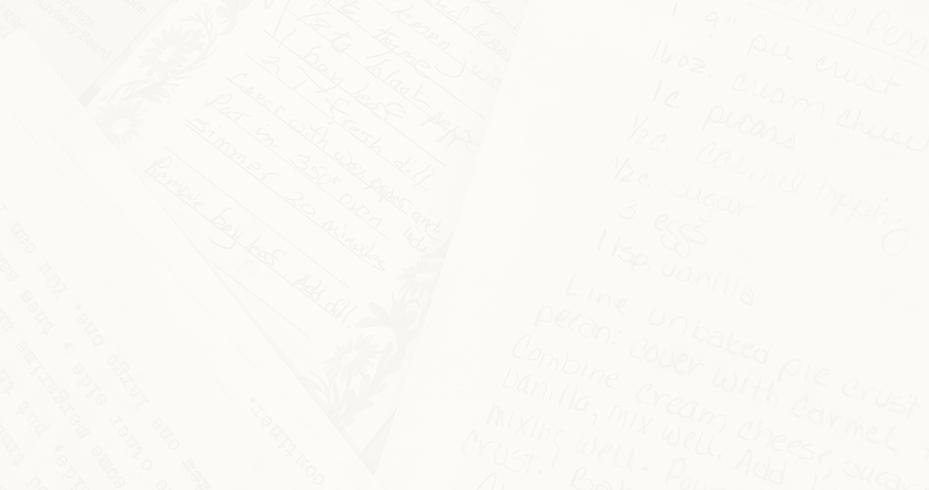The Jewish Press










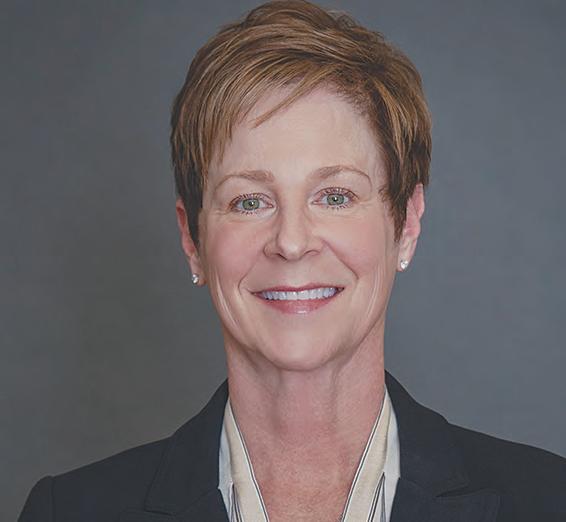
in a community mission or national conference.
We are pleased to announce Susie Norton and Tom Fellman as recipients of the Jewish Federation of Omaha Phil and Terri Schrager Spirit of Federation Award. They will accept their award Sunday, Oct. 5, at our Annual Campaign Community Kickoff Event.
The Phil & Terri Schrager Spirit of Federation Award is given annually to honor one man and one woman (ages 45 and older) who have demonstrated personal commitment, dedication, and leadership to the Federation and/or its Agencies. The Federation Executive Committee selects the winners, and both recipients receive a stipend to participate
Susie serves on the Rose Blumkin Jewish Home advisory board and the Jewish Family Service advisory board. She led the Friends campaign for several years, growing the campaign in each of the years. In addition, she served on the board of the Jewish Federation of Omaha Foundation.
“Susie is a doer,” Mike Siegel, past Chair of the JFO board, said, “and always willing to help out. She steps up when needed and is always willing to listen and solve problems. She and her husband Mike have instilled her love for Judaism and the importance of giving back in all four of her boys, who all participated in BBYO and were actively recruiting members to grow it. They all attended Jewish overnight camp and later became camp counselors. She See Spirit of Federation page 3
MAGGIE CONTI
RBJH Director of Activities and Volunteer Services
Cathy Pacholski (keyboard) and her daughter Taylor Wyatt (vocals) are no strangers to the Rose Blumkin Jewish Home. Every Sunday morning, they light up each lounge with their heartwarming program, Music… In the Moments
But this time, Cathy had something extra special in mind: a full outdoor concert featuring their newly formed band, Milestones in Music. The performance helped us celebrate Grandparents Day in true RBJH style!
Joining Cathy and Taylor were the

incredibly talented Annie Gaston on guitar and Chris Bennett on drums; together, they delivered a performance to remember. The weather was picture-perfect, and the music was absolutely glorious. From Neil Diamond to The Beatles, and even a little Bette Midler, the set list had toes tapping, hands clapping, and voices singing along. It was a celebration not just of grandparents, but of music, memories, and the special bonds that See RBJH page 3
Jewish Press Editor
Thursday October 16, from 6-8 p.m., Julie Platt will address Lions of Judah and Pomegranates at our next Women’s Philanthropy event. The evening is co-hosted by National Women’s Philanthropy Board members Cindy Goldberg, Danielle Gordman, Dana Kaufman, Kimberly Robinson, Stacey Rockman and Nancy Schlesinger.
Julie Platt is the immediate Past Chair of the Jewish Federations of North America (JFNA) Board of Trustees, only the second woman to hold that position. She will share her passion for Israel and its ongoing security, the vital role of Jewish women in leadership and philanthropy, as well as her personal journey in Jewish communal service.
In January of this year, Israeli President Isaac Herzog awarded Julie the Israeli Presidential Medal of Honor, which is Israel’s highest civilian honor. She is also the recipient of the Ruby Award from National Women’s Philanthropy.
Reading up on Julie Beren Platt’s

accomplishments, one quickly comes to the conclusion she’s both passionate and impressive. Or, perhaps, she’s impressive because she is passionate. She was Vice President for Commercial Banking for Bankers Trust Company in New York City, and subsequently made her home in Los Angeles, together with her husband Marc. Who, by the way, she met during her first week at the University of Pennsylvania. Then, there is the Ziegler School of Rabbinic Studies, the Julie See Julie Platt page 3
There were smiles. There were tears. There were hugs. There was frequent laughter. It was an emotional evening, as Beth Israel and the community celebrated Rabbi Ari and Laura Dembitzer. After nearly 20 years, Omaha will be saying farewell to this dynamic couple who have made a deep impact throughout the community. With nearly 200 people in attendance, the admiration, respect and love for Ari and Laura was palpable during the two-hour event.
Following a delicious dinner by Chef John Hattam, Emcee Deborah Denenberg welcomed the attendees, some of whom
shared heartfelt remarks about their time in Omaha. She talked about her first visit to Omaha, which was her third date with Ari and how she discovered why he loved the community. Starting their family here has been a joy and leaving a multitude of friends and a place where “people are nice for no reason,” will be very difficult.
Next up was the presentation of the Lifetime Achievement Award to Helene Shrago, by Rabbi Ari and Beth Israel President, Yosef Seigel. Helene expressed her thanks for the award, sharing it was also a recognition for the many dedicated people with whom she has worked.
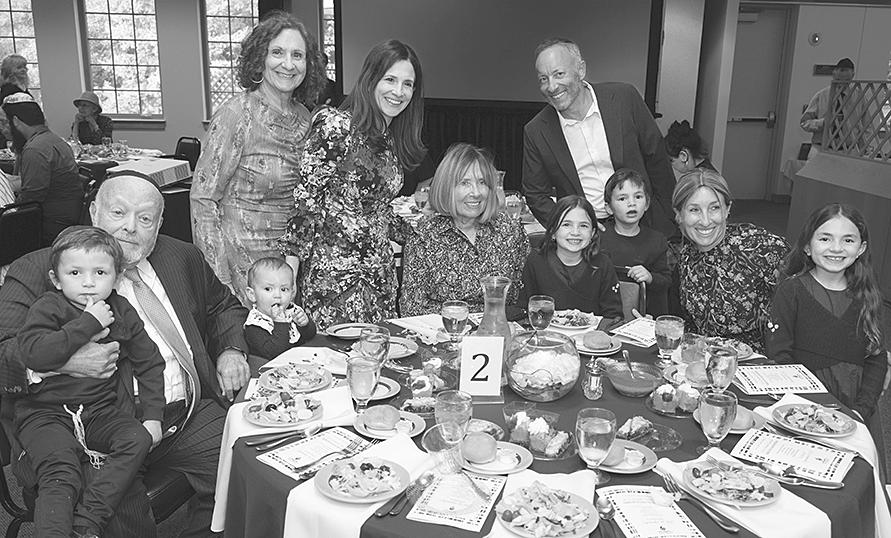
traveled from New York, Baltimore, Chicago, Peoria, and even Sri Lanka. The Prayer for the Hostages was then given by Rabbi Eitan Ziv.
The first video of the evening, “One Word,” featured people using just one word to describe Rabbi Ari, which many found a somewhat daunting task. The video was followed by Donald Gerber, Jack Cohen, and Samuel Silverman, delighting the audience with a song of custom lyrics, written by Donald with Anna Mosenkis as accompanist. Rabbi Mordechai Geiger, Beth Israel’s incoming senior rabbi, next shared a D’var Torah. The second evening’s video highlighted Laura. Laura then

The evening concluded with one final video, this one focused on Rabbi Ari. It was then time for Rabbi Ari to speak. The many pauses during his talk highlighted his deep emotion and love that he has for Beth Israel and the Omaha Jewish community. Rabbi Ari challenged everyone to continue to move forward in their Judaism and thanked everyone for making Omaha such a wonderful community.
The event concluded by the singing of Hatikvah.
The Board of Directors and staff express their sincere thanks to the community support for this celebration, both by attending and through generous donations. A video of the event plus pictures will be shared in the coming weeks. Thanks also to the dinner committee members, Bruce Potash, Helene Shrago, Bette Kozlen, Ron Giller, Howard Kutler, Debbie Roitstein, Nancy Wolf, Sarah Abrahamson, Karen Cohen, Rabbi Mordechai Geiger, and Mary Sue Grossman for their work in making the event a success. For information on other upcoming events at Beth Israel, check the synagogue website at orthodoxomaha.org or by calling 402.556.6288.






As I do on every morning of the year, come this Yom Kippur, I will be at the Etsyon synagogue (Sarah prefers a different shul: Lechu Neranena). My last name (in Hebrew) is on a plaque over my seat, and this always gladdens my heart. For the first and the last of Yom Kippur’s five services, Kol Nidrei and Nei’lah, Etsyon offers an additional venue: the synagogue’s outdoor pergola. There are Israelis for whom synagogue attendance conflicts with their secular identity, but the pergola offers them a compromise: yes, these are traditional services, but they are being held in a non-traditional location. For quite a number of people, though, even entering the pergola does not feel right, and so they congregate outside, watching and listening to the goings-on.
Like last year, I will elect to stay inside for all the services on Yom Kippur. While I support Etyson’s outdoor services, I believe that were I to attend, I would be too self-conscious; instead of focusing on the words and melodies of the service, I imagine that I would be distracted by the onlookers. Do they approve of what they are seeing? Can they relate? Am I playing my part well? I imagine myself also experiencing some sadness at the fact that my fellow Jews feel so estranged from organized religion that they cannot come any closer than to witness from outside.
I knew that my friend Lorre Goldberg has a very different view of Etzyon’s outdoor services, and especially the Ne’ilah service. For the other Yom Kippur services, Lorre attends Kinor David, but every year, she elects to complete the Day of Atonement at Etsyon’s outdoor service. I asked Lorre about this. “First of all,” she says, “the physical setting is wonderful: you are sitting in nature [the pergola is surrounded by trees and bushes], the weather is beautiful, and there’s a nice breeze from the fan above me. As the service progresses and the day closes down, you see the neighborhood congregating outside: we are davening and the neighbors are watching us, in their shorts, with their dogs, the children on their bikes. Like us inside the pergola, they too are waiting for the final shofar; we are all together, and we are all part of this.” My own personal reservation about the outdoor services turns out not to be a factor for Lorre: “I don’t feel selfconscious praying there. I feel like we are all doing what we want to do, but we are doing it together. We live in a Jewish country, and we should all be free to celebrate our Judaism in a way that is comfortable for us and respectful to others.
I am celebrating my Judaism at Ne’ilah by davening inside See Ne’ilah Minyan page 4







Continued from page 1 encouraged all of her children to visit Israel and even had one of her boys spend a year in an immersion program in Israel. Susie is a strong supporter of Jewish life in Omaha. You can count on her to attend events both at the JFO and at Temple Israel, and often invites others to join her in programming. “
Susie is one of the best volunteers in our Omaha Jewish community. She inspires others to join her and is willing to reach out to make sure community members know about JFO programming. She serves our community not for herself, but to strengthen our community, leads by example and understands the nuances of non-profit work. Community Members often look to Susie to get her advice or opinion.
Past JFO president Tom Fellman has been a beacon of inspiration within the Omaha Jewish community, embodying the values of leadership, creativity, and unwavering commitment to Jewish life.
“Tom's passion for Israel and global Jewry,” JFO CEO Bob Goldberg said, “has been evident through his innovative initiatives. In 1991, he co-chaired the first Omaha Federation Community Mission to Israel in many years, alongside Joodi Veitzer, Howard Kooper, and Anne Shackman. This mission reignited the community's passion for Israel, and Tom's enthusiasm was contagious. Who can forget the iconic photo in the Jewish Press of Tom with an Ethiopian boy on his shoulders, embodying the spirit of connection and support?”
Tom’s creativity inspired many Omahans to reconnect with their Jewish heritage and understand the importance of supporting both Israeli and local Jewish communities. His commitment to nurturing the next generation of leaders is exemplified by his funding and leading of a Young Leaders Mission. He understands that physically getting people to Israel helps them connect with their Jewish identity and inspire them to support their communities.
“His innovative approach continued with the Men's Motor-
Continued from page 1 bring us together.
At RBJH, we believe grandparents deserve more than just a day; that’s why we mark the occasion each year with a monthly special concert, made possible through the generous support of the Sheldon and Lorrie Bernstein Endowment, Betty Studna and Seymour Lee Endowment, and the Chester & Phyllis Lustgarten Endowment Funds of the Jewish Federation of Omaha Foundation. Stay tuned! More details about RBJH Grandparents’ Month will come soon.

cycle Mission,” Bob said, “offering participants a unique and transformative experience in Israel. Throughout the years, Tom has chaired and inspired numerous fundraising campaigns, including Pacesetter Division and Annual Campaigns.”
His ability to mobilize resources and engage the community is unparalleled. Memorable events, such as the tented Men's event at Broadmoor Development in 2006, showcased his flair for creating impactful and engaging experiences. Tom's philanthropic impact extends to capital campaigns, such as the first JCC remodel in 1990 and the RBJH project. Collaborating with close friends like Howard Kooper, Harlan Noddle, and Phil Schrager, Tom's mantra has always been "let's do it," reflecting his proactive and passionate approach to community building. His support for global Jewish causes has been unwavering. From campaigns to support Soviet Jewry in the 1980s and Ethiopians in Israel in the 90s to contributions during the Arab Intifada (1987-2005) and Israeli wars, Tom has ensured that Omaha met its responsibilities as a strong, caring Jewish community.
His recent involvement in the Israel Emergency Campaign (2023-24), where he provided matching funds to kickstart the campaign, further demonstrates his commitment to supporting Israel. Tom Fellman's leadership, creativity, and passion have inspired countless individuals to serve the Omaha Jewish community.
Susie serves as a shining example of what it looks like when one truly cares for community. Tom's legacy is one of building and sustaining a vibrant and supportive Jewish community, both locally and globally. Both these recipients have set a powerful example for others to follow.
The Annual Campaign Kickoff Event will be held at the Staenberg Omaha JCC, from 6:45-9 p.m. The Jewish Federation of Omaha Staff and Board wish Susie and Tom mazal tov on this well-deserved honor. For more information about how you can follow their example and get involved, please visit www.jewishomaha.org and click the ‘volunteer’ button.




PARSHAT BEHALOSCHA
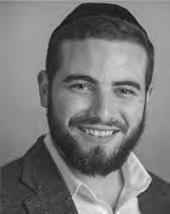
When we first moved to Omaha two years ago, I received an email from a school teacher. He is a world religions teacher, and he would appreciate it if a rabbi would be willing to come to a Q&A session about Judaism with the three classes he teaches. I thought this was a wonderful opportunity to share firsthand our beliefs with the next generationmany of whom probably never had a conversation with a jew in their lives. And the clincher? The teacher's name was as Jewish as it gets, David Stein (name changed for privacy). As I put the address for the school into Google Maps, I realized that I was on my way to a private Christian school, and no, David Stein was not Jewish by any stretch. It ended up being a wonderful experience that was educational for the students and me alike.
This year was my third year doing this, and at the end of the class, I was asked a powerful question. “Rabbi, what would you say is unique about Judaism in comparison with all other religions?”. This is a really tough question, because honestly, there are so many good answers! The answer that I came up with can be found in this week's parsha. Moshe is about to pass away, and he reminds the Jewish people of their individual deep connection with G-d, not dependent on him, or any leader. We are the only religion and people who experienced mass revelation! We do not follow one special chosen prophet; every Jew, man, woman, and child heard G-d's voice at Sinai. We must always remember not only how much G-d loves our people, but how deeply He cares about every single individual.
Shabbat Shalom.
Continued from page 1
Beren Platt and Marc E. Platt Foundation; she served as interim Chair of the University of Pennsylvania’s Board and of course her historic achievements as Chair of the JFNA board during an extremely challenging time. In the wake of October 7, Jewish federations sprang into action and launched a $500 million emergency campaign by October 12. They surpassed that initial goal, having raised over $860 million for lifeline services, medical and trauma relief, economic aid and recovery and community rebuilding efforts.
“Earlier this year,” past JFO Chair Nancy Schlessinger said, “the Women’s Philanthropy event was held in New York. Julie was at the end of her tenure as JFNA Chair, and I was invited to a farewell celebration of Julie. Hearing what people said about everything she has accomplished was incredibly inspiring; I want more people to experience that! She is amazing, and completely real and down-to-earth at the same time.” RSVPs can be sent to Lisa Shkolnick at sshkolnick@jewishomaha.org or 402.334.6430 by October 10


JFO Community Engagement and Education
As a prelude to the Omaha Jewish Film Festival, the recently released documentary Torn: The Israel-Palestine Poster War on NYC Streets will be screened at the Staenberg Omaha JCC’s Alan J. Levine Theater on Nov. 2 at 5 p.m. The evening will feature a discussion with Nim Shapira, the film’s director, producer, and writer, along with artists Nitzan Mintz and Dede BandAid, creators of the hostage posters highlighted in the film. Having the filmmakers and artists present, offers attendees a rare opportunity to gain firsthand insight into the creative process, the intentions behind the campaign, and the complex ethical questions raised, enriching the audience’s understanding and fostering a meaningful dialogue.
Torn highlights how New York City became an unlikely battleground in the aftermath of the Oct. 7 attacks in Israel. In the weeks following the attacks, flyers featuring the names and faces of hostages appeared on subway stations, storefronts, and lampposts across the city. Organizers said the campaign was meant to keep attention on those missing and to pressure for their safe return. The posters quickly became flashpoints: many were ripped down or defaced, with critics arguing the images presented a one-sided view of the conflict while ignoring Palestinian casualties in Gaza.
By documenting these tensions, Torn underscores how even ordinary acts such as attaching a piece of paper to a wall or tearing it down can symbolize far deeper ideological divides. It shows how a distant war fractured daily life in one of the world’s most diverse cities, challenging the limits of empathy,
freedom of speech, and communal solidarity.
The film poses no answers; it seeks to create space for dialogue and empathy in a city and a world struggling to reconcile competing truths. What better way to explore these truths than engaging in a discussion with Nim, Nitzan, and Dede? As researchers of events and creators of the film, their unique and in-depth understanding is sure to foster a meaningful exchange of thoughts.
Torn: The Israel-Palestine Poster War on NYC Streets, along with the opportunity to engage with the film’s creators and featured artists, is presented with the generous financial support of Susie Noddle and John Ziegelman. Please register for Torn, by using the QR code with this article.
Continued from page 2
the pergola; they are celebrating by standing right outside-it is all absolutely fine for me. They are participating and they are part of it. They made a conscious choice, and they are here with us.”

Lorre went on: “Sometimes all you need to do is show up, and who knows where that’s going to lead. Those little kids standing outside with their parents--maybe when they get older, they will sit in the pergola. Right now we are watching each other from afar, but who knows what can happen in the future? The outdoor minyan is an opportunity for Jews from all levels of practice to be together. I feel connected to everyone there, both inside the pergola and outside.” I raised a delicate point here with Lorre: If she hopes for a future where the onlookers will be inside, does that mean that that is the “better” choice? Lorre emphasized that she is in no way critical of the onlookers; they are celebrating their Judaism in a way that is appropriate for them. If they ever feel like exploring the experience on a different level (and certainly on a more comfortable level—sitting rather than standing), if they ever wanted to follow the prayers from a mahzor rather than to just catch the occasional word from afar, then they are more than welcome to do so--not that bringing the onlookers inside is a “goal.” Lorre adds: “I feel connected to everyone at Nei’lah, to who they are right now. We are different but right now we are all connected through Yom Kippur. Etsyon’s outdoor Neilah minyan is a wonderful example of tolerance and acceptance, and we need that so much these days.”
G’mar Hatima Tova: May you all be inscribed in the Book of Life.
Teddy Weinberger, Ph.D., made aliyah with his wife, former Omahan Sarah Jane Ross, and their five children, Nathan, Rebecca, Ruthie, Ezra, and Elie, all of whom are veterans of the Israeli Defense Forces; Weinberger can be reached at weinross@gmail.com.

The screening of Torn and the opportunity to hear directly from its creators set the stage for a week of engaging and thought-provoking cinema. Just one week later, the community will gather for the 23rd Annual Omaha Jewish Film Festival, running Nov. 9–12 at 6 p.m. each evening. This year’s lineup offers something for everyone, featuring a lively mix of genres: Bad Shabbos, a farce; The Property, a docudrama; Matchmaking 2, a comedy; Swedishkyte: Yidlife Crisis, a comedic documentary. Together, these films highlight the diversity of Jewish storytelling and the many ways humor, drama, and reflection come together on screen.
MUSHKA TENENBAUM
Chabad of Nebraska
At Chabad, food is more than nourishment—it’s a way of spreading love, building community, and bringing the flavors of our heritage to life. For many years, we’ve delighted in sharing Jewish holiday meals with our community, and in recent years we’ve added something even more special: A Taste of Tradition.
Just before Rosh Hashanah, community members are invited to join a festive “taste test” event where they sample traditional holiday recipes and cast their votes for their favorites. The winning dishes then become part of the Rosh Hashanah menu enjoyed by families across the city. It’s a delicious way to connect with Jewish tradition, while also strengthening our bonds as a community.
This year’s tasting offered a variety of choices sure to please every palate. Challah options included sesamecrusted, black-and-white, and cinnamon sugar. The winner? Cinnamon sugar challah — soft, sweet, and just right for a New Year celebration! Salads were equally enticing: bean salad, kasha varnishkes (a beloved childhood favorite for many), and a vibrant cabbage salad. The kugels — those comfort-food carbs that come second only to challah — were a highlight with sweet lokshen, sweet potato-carrot, and apple kugel all competing for votes.
for the year ahead.
Apples dipped in honey: a prayer for a sweet new year.
The head of a fish — or even a ram: to be like the head and not the tail, leaders and not followers.
Pomegranates: filled with seeds, symbolizing the many mitzvot that fill a Jew’s life. (As children, some of us counted the seeds, hoping for 613. The number was usually closer to 300 — but the message still holds.)
Carrots (merrin in Yiddish): symbolizing the blessing to “increase” and multiply in goodness.

Honey cake: enjoyed on Rosh Hashanah and again before Yom Kippur, each time with its own layer of meaning.
For many, these recipes are family treasures. I myself still call my grandmother each year to double-check her carrot Tsimmes recipe — it’s tradition, after all, and you can never be too sure!
The Taste of Tradition is more than a food tasting. It’s a way for our community to gather, share stories, laugh, and celebrate together. Once the votes are tallied, Chabad makes the winning foods available for order, offering delicious kosher holiday meals to anyone who would like them — without the mess in their own kitchen.
It’s one of the ways we spread joy and tradition far and wide, ensuring that every home can enjoy the taste — and meaning — of the holidays.
‘Write With Us,’ our small and intimate writing workshop (no need to be nervous) continues in the Fall. Upcoming workshops are scheduled for Oct. 30, Nov. 13 and Dec. 11 from 5-7 p.m. in the Noshery at the Staenberg Omaha JCC. Register by contacting Jessi at jtaylor@jewishomaha.org or Annette at avandekamp@jewishomaha.org. There is no cost to attend, although donations are always welcome.
If you have wanted to write your family’s story, that great American novel, or you have always wanted to try your hand at poetry, join us! Maybe you are already an accomplished writer, but you would benefit from being in a room with other writers. Perhaps you have convinced yourself you can’t write at all, but would love to try. Everyone, from absolute beginner to professional, is welcome to attend. We will provide the kosher snacks and the writing prompts.


Desserts rounded out the tasting with cinnamon buns, a lighter carrot cake, and the classic honey cake. Honey cake, of course, came out on top — linking us directly to the sweet symbolism of Rosh Hashanah.
On Rosh Hashanah, we don’t just eat traditional foods because they taste good (though they certainly do!). Each dish carries meaning, reminding us of Hashem’s love and our hopes
As we bite into our cinnamon sugar challah or savor a slice of honey cake this year, may each flavor remind us of our roots, our faith, and our hopes for a year filled with sweetness and blessing.
Happy eating this holiday season — and after the chagim, perhaps a well-earned carb vacation!
JFO Community Engagement and Education
For many families in our community, watching a son or daughter learn Hebrew and prepare for a Bar or Bat Mitzvah is more than a rite of passage — it is a joyful, memorable experience, thanks to the guidance of Eileen Clignett. For over 35 years, she has patiently and expertly taught Hebrew to generations of students, helping each child step onto the bimah with confidence, skill, and pride.
During the school year, Eileen works with students in grades three through eight at both Temple Israel and Beth El Synagogue, and through the Jewish Federation of Omaha’s individual learning program. Known for her oneon-one approach,
Eileen meets each student exactly where they are in their Hebrew language and reading development.
“You can see when it ‘clicks,’ they get a light in their eyes and start to really believe in themselves. They know that they’ve ‘got this’ and that they can accomplish the task,” Eileen said.
ules additional learning times with students on a one-on-one basis. The JFO’s summer “Keep in Touch” program helps ensure that students continue learning and avoid the “out of school memory lapse” that can happen, as well as keeping students on track for their fall bar or bat mitzvah services.
Parent Trish Marks shared that, “Eileen is an amazing teacher who has a unique ability to connect with her students. She teaches both of my children. They are very different, but Eileen adapts her teaching methods to the individual students. I’ve never met a teacher more invested in their students’ learning. Eileen has gone above and beyond for Nate - always pushing him to do his best and encouraging him to do more. Both of my children love her and look forward to meeting with her every week.” Then she added, “I could go on and on about what a wonderful teacher she is!”

She takes the time to understand every learner’s needs, adapting her teaching to help them grow skills with confidence. Her endless patience, flexibility, and genuine care create an environment where students feel valued and capable. Through her guidance, students not only master skills, prayers, and Torah portions, they also gain a deeper connection to Jewish learning and a lasting sense of accomplishment.
“If her only asset was that she was skilled at teaching Hebrew, that would be wonderful,” Director of Education at Temple Israel Julee S. Levine said. “When you add to that her depth of compassion, the strong belief she has that each student can succeed, and the ways in which she creates learning opportunities that are both challenging and nurturing, you get someone who exemplifies the best of Jewish education and community.”
Eileen, who often works with her students for more than a year, expressed a love for the difference she makes in her students’ lives. “As a teacher, I want every student to learn and grow as much as they can while they’re working with me,” Eileen continued, “Not only is their Hebrew progress tangible, but I also have the opportunity to watch their personalities grow as well.”
During the summer months, Eileen sched-
A rare 15th-century Portuguese Jewish manuscript, long incomplete after it was split into three parts, is whole again after the National Library of Israel reunited its final missing pieces.
The Lisbon Mahzor, which contains Sephardic prayers for the High Holidays, Three Festivals and more, was produced by the Lisbon school of Portuguese Jewry in the final years before the region’s Jews were forced to either convert or be expelled in 1496.
“It appears that even in their most difficult moments the Portuguese Jewish community did not give up its books – they took these cultural treasures along to their next
During a recent session, Eileen’s student, Nate, sat fully engaged with his teacher. Just a few weeks earlier, he had delivered an exemplary Torah reading at Beth El Synagogue. When asked how he managed to do so well at such a young age, Nate turned to Eileen and replied with conviction, “I have a great teacher.” He is not the first to say that and surely won’t be the last.
Eileen’s influence in the community goes beyond her Hebrew students. In the early 2000s, Naomi Fox, Director of Engagement and Education at the Jewish Federation of Omaha, began her career in education as a teen helper in Eileen’s classroom at Temple Israel.
“Working alongside Eileen as a teen showed me how specialized teachers play a critical role in building confidence and resilience in students as they tackle hard things,” Naomi said. “I carried that lesson with me throughout my years teaching English learners in a variety of settings in Omaha Public Schools.”
As testament to the appreciation families have for Eileen and her work, Eileen’s name is at the top of the list of those whom the B’nai mitzvah thank on their big day. There could be no more fitting tribute to the importance of her work than to hearing it from the ones who benefit from it the most.
Eileen continues to shape the future of our community one student at a time, instilling confidence, pride, and a love of Jewish learning that will resonate for generations. Thank you, Eileen.
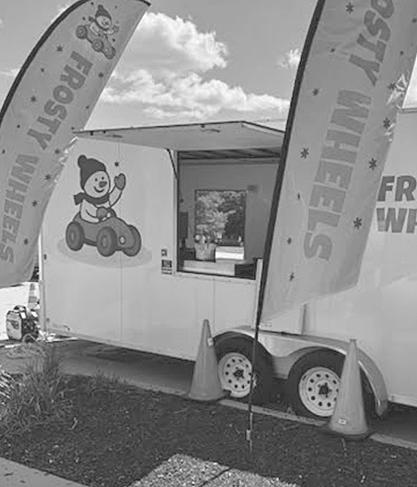
ALAN KOHLL
Whether it’s a summer camp, a company picnic, or a school open house, events in Omaha are a little cooler when Frosty Wheels rolls up. The bright white shaved ice truck, led by its friendly snowman mascot Sheleg —Hebrew for “snow”— brings a playful spirit and refreshing treats to gatherings all across the community.
Founded by longtime Omaha entrepreneur Alan Kohll, Frosty Wheels is more than just a family project. It’s a community-driven business designed to create happy moments, teach kids the value of teamwork, and give back locally. From corporate outings and community events to birthdays, block parties, and fundraisers, Frosty Wheels has quickly become a go-to favorite.
“We wanted something our family could build together,” Alan says. “Frosty Wheels is about more than shaved ice. It’s about creat-
ing memories and teaching my boys that work can be fun.”
One thing that makes Frosty Wheels truly unique: it’s the only Kosher-certified food truck in Omaha. Families and organizations across the city can enjoy the sweet treats with confidence, knowing the menu meets Kosher standards. Frosty Wheels has already served at community events like the JCC Summer Camp and the Friedel Jewish Academy Open House.
With a streamlined setup and fast service, Frosty Wheels makes it simple for schools, companies, and event organizers to add a refreshing crowd-pleaser. The team also offers prepaid packages, giving planners an easy, allinclusive option.
At the heart of Frosty Wheels is the Kohll family’s hands-on approach. Alan’s sons help with setup and, occasionally, “flavor research,” learning responsibility, customer service, and the joy of giving back along the way. Frosty Wheels blends entrepreneurship, family values, and community spirit.
About Frosty Wheels
Frosty Wheels is a family-owned shaved ice truck serving the Omaha metro area. Founded by Alan Kohll, Frosty Wheels specializes in community events, company outings, school fundraisers, youth camps, and birthday parties. With its snowman mascot, Sheleg, and a commitment to making small moments feel special, Frosty Wheels delivers smiles in every scoop. It is proudly the only Kosher-certified food truck in Omaha. For more information please contact Alan Kohll at alan@frostywheels.com or visit us at FrostyWheels.com
The award-winning B’NAI B’RITH BREADBREAKERS speaker program currently meets Wednesdays via Zoom from noon to 1 p.m. Please watch our email for specific information concerning its thought-provoking, informative list of speakers. To be placed on the email list, contact Breadbreakers chair at gary.javitch@gmail.com
Announcements may be e-mailed to the Press at jpress@jewishomaha.org; or mailed to 333 So. 132 St., Omaha, NE 68154. Readers can also submit announcements -- births, b’nai mitzvahs, engagements, marriages, commitment ceremonies or obituaries -- online at www.omahajewishpress.com/site/ forms/. Deadlines are normally nine days
destination,” Chaim Neria, the curator of the National Library of Israel’s Haim and Hanna Solomon Judaica Collection, said in a statement.
The small-format manuscript on parchment features artistic decorations throughout, including lace and geometric and floral motifs typical of Portuguese manuscript illumination. At an unknown point in time, the mahzor was split into three parts, with the first, containing Sabbath prayers, being delivered to the National Library of Israel in 1957.
The final two parts had been lost to history until they recently came up for auction and were withdrawn and purchased on behalf of the library due to their historical significance.
prior to publication, on Wednesdays, 9 a.m.
The Jewish Press will be closed on Thursday Oct. 2 for Yom Kippur and Tuesday, Oct 7 for Sukkot. The deadline for the Oct. 3 issue it is Friday, Sept. 19, 9 a.m.; for the Oct. 10 issue it is Tuesday, Sept. 30, 9 a.m.; for the Oct. 17 issue it is Monday, Oct. 6, noon. Questions? Call 402.334.6448.



On Sunday, August 24, we celebrated 100 years of Omaha JCC
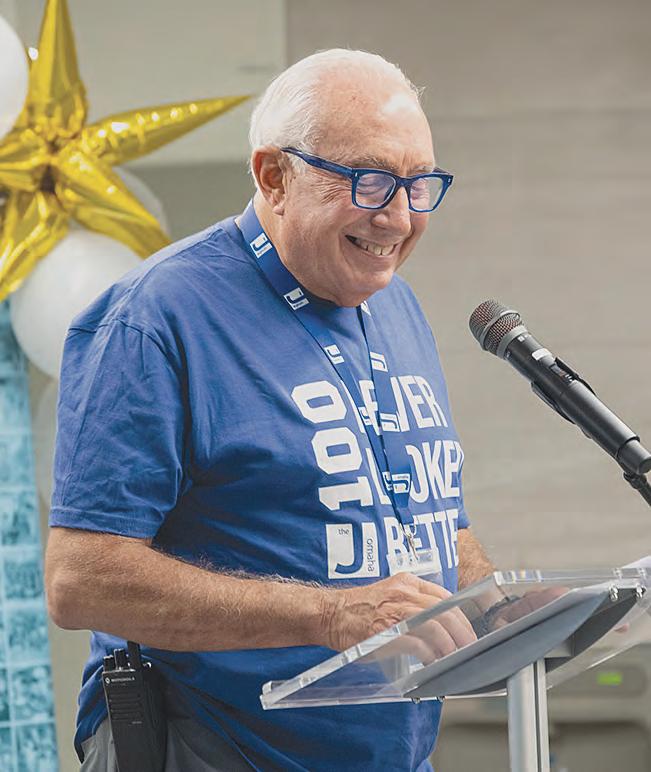
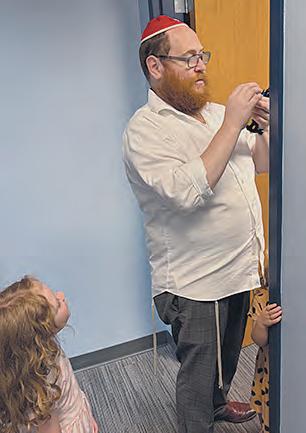
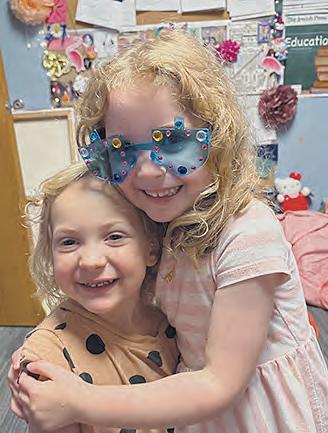


Friedel Jewish Academy first and second graders had their first garden class of the year and harvested hundreds of fresh vegetables from the school garden!




PHOTOS FROM RECENT JEWISH COMMUNITY EVENTS
SUBMIT A PHOTO: Have a photo of a recent Jewish Community event you would like to submit? Email the image and a suggested caption to: avandekamp@jewishomaha.org




SHIRLY BANNER
JFO Library Specialist
Young Adult:


D.J. Rosenblum Becomes the G.O.A.T. by Abby White It’s the beginning of the school year — and Briar’s newest resident, D.J. Rosenblum, is not here for it. Ever since her cousin Rachel died, D.J.’s family has been a mess: Her aunt and uncle are catatonic. Her mom is even more scatterbrained than usual. She had to postpone her bat mitzvah a whole year. Worst of all, she and her mom had to move — leaving her best friend, Eva, behind. Briar does have one redeeming factor, though: Here, in Rachel’s hometown, D.J. can finally get to the bottom of her cousin’s death. With the help of a chatty journalist and a queen-bee hacker, D.J. can fill in the last days of Rachel’s life. And if she can just figure out her Torah portion—with help from her cute tutor, Jonah — maybe, just maybe, she’ll be able to solve a bigger mystery.
For fans of Looking for Alaska and Never Have I Ever comes Abby White’s debut novel, D.J. Rosenblum Becomes the G.O.A.T. It’s a basket of matzo ball soup dumplings for anyone learning to chart their own path, navigate new friendships and crushes, and figure out how to love—and live—after loss.
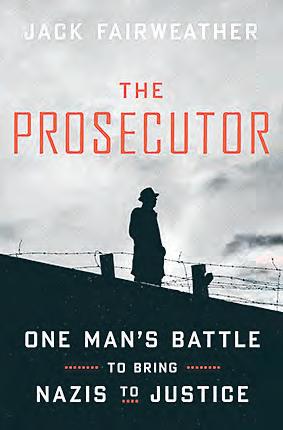

Adult:
The Prosecutor: One Man’s Battle to Bring Nazis to Justice by Jack Fairweather At the end of the Nuremberg trial in 1946, some of the greatest war criminals in history were sentenced to death, but hundreds of thousands of Nazi murderers and collaborators remained at large. The Allies were ready to overlook their pasts as the Cold War began, and the horrors of the Holocaust were in danger of being forgotten.
In The Prosecutor, Jack Fairweather brings to life the remark-
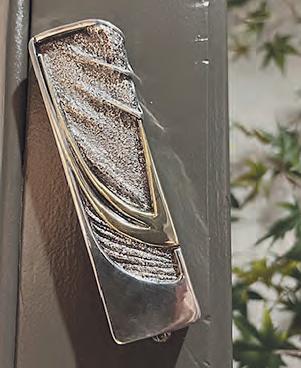
able story of Fritz Bauer, a gay, Jewish judge from Stuttgart who survived the Nazis and made it his mission to force his countrymen to confront their complicity in the genocide. In this deeply researched book, Fairweather draws on unpublished family papers, newly declassified German records, and exclusive interviews to immerse readers in the shadowy, unfamiliar world of postwar West Germany where those who implemented genocide run the country, the CIA is funding Hitler’s former spy ring in the east, and Nazi-era anti-gay laws are strictly enforced. But once Bauer landed on the trail of Adolf Eichmann, he wouldn’t be intimidated. His journey took him deep into the dark heart of West Germany, where his fight for justice would set him against his own government and a network of former Nazis and spies bent on silencing him.
In a time when the history of the Holocaust is taken for granted, The Prosecutor reveals the courtroom battles that were fought to establish its legacy and the personal cost of speaking out. The result is a searing portrait of a nation emerging from the ruins of fascism and one man’s courage in forcing his people — and the world — to face the truth.
Typewriter Beach by Meg Waite Clayton
1957. Isabella Giori is ten months into a standard seven-year studio contract when she auditions with Hitchcock. Just weeks later, she is sequestered by the studio’s “fixer” in a tiny Carmel cottage, waiting and dreading.


Meanwhile, next door, Léon Chazan is annoyed as hell when Iz interrupts his work on yet another screenplay he won’t be able to sell, because he’s been blacklisted. Soon, they’re together in his roadster, speeding down the fog-shrouded Big Sur coast. 2018. Twenty-six-year-old screenwriter Gemma Chazan, in Carmel to sell her grandfather’s cottage, finds a hidden safe full of secrets—raising questions about whom the screenwriter known simply as Chazan really was, and whether she can live up to his name.
In graceful prose and with an intimate understanding of human nature, Meg Waite Clayton captures the joys and frustrations of being a writer, being a woman, being a star, and being in love. Typewriter Beach is the story of two women separated by generations — a tale of ideas and ideals, passion and persistence, creativity, politics, and family.
Sandy and Jeff Passer purchased their mezuzah in Jerusalem, December 1989.
“We traveled to Israel with a group from Temple Israel, led by Rabbi Azriel. Elyce Azriel(z’l) took us shopping in Jerusalem; she knew all the best Judaica shops. After our return to Omaha, we hosted a Mezuzah Party. We invited fellow travelers, friends and family. All five children plus Jeff and I placed the mezuzah on our front doorpost. It has continued to protect our coming and going since that time.”
Are you thinking about your own cases? We would love to hear from you, and see what is divinely protecting your scroll(s) and your home.
We hope you will feel inspired, and are ready to share your story with us at https://www.jewishomaha.org/community-engagement/mezuzot-of-omaha/ For additional questions, please email Naomi Fox at nfox@jewishomaha.org, Pam Monsky at pmonsky@jewishomaha.org, Jane Nesbit at jnesbit@ihene.org or Annette van de Kamp-Wright at avandekamp@jewishomaha.org






(Founded in 1920)
David Finkelstein
President
Annette van de Kamp-Wright
Editor
Will Fischer
Creative Director
Claire Endelman
Sales Director
Lori Kooper-Schwarz
Assistant Editor
Sam Kricsfeld
Digital support
Mary Bachteler
Accounting
Jewish Press Advisory Board
David Finkelstein, President; Margie Gutnik, Ex-Officio; Joseph Abrahams, Helen Epstein, Andrea Erlich, Ally Freeman, Dana Gonzales, Mary Sue Grossman, Hailey Krueger, Chuck Lucoff, Sara Rips, Melissa Shrago, Stewart Winograd and Bob Yaffe.
The mission of the Jewish Federation of Omaha is to build and sustain a strong and vibrant Omaha Jewish Community and to support Jews in Israel and around the world. Agencies of the JFO are: Institute for Holocaust Education, Jewish Community Relations Council, Jewish Community Center, Jewish Social Services, Nebraska Jewish Historical Society and the Jewish Press Guidelines and highlights of the Jewish Press, including front page stories and announcements, can be found online at: www.jewishomaha.org; click on ‘Jewish Press.’ Editorials express the view of the writer and are not necessarily representative of the views of the Jewish Press Board of Directors, the Jewish Federation of Omaha Board of Directors, or the Omaha Jewish community as a whole. The Jewish Press reserves the right to edit signed letters and articles for space and content. The Jewish Press is not responsible for the Kashrut of any product or establishment.
Editorial
The Jewish Press is an agency of the Jewish Federation of Omaha. Deadline for copy, ads and photos is: Thursday, 9 a.m., eight days prior to publication. E-mail editorial material and photos to: avandekamp@jewishomaha.org ; send ads (in TIF or PDF format) to: rbusse@jewishomaha.org
Letters to the Editor Guidelines
The Jewish Press welcomes Letters to the Editor. They may be sent via regular mail to: The Jewish Press, 333 So. 132 St., Omaha, NE 68154; via fax: 1.402.334.5422 or via e-mail to the Editor at: avandekamp@jewishomaha.org.
Letters should be no longer than 250 words and must be single-spaced typed, not hand-written. Published letters should be confined to opinions and comments on articles or events. News items should not be submitted and printed as a “Letter to the Editor.”
The Editor may edit letters for content and space restrictions. Letters may be published without giving an opposing view. Information shall be verified before printing. All letters must be signed by the writer. The Jewish Press will not publish letters that appear to be part of an organized campaign, nor letters copied from the Internet. No letters should be published from candidates running for office, but others may write on their behalf.
Letters of thanks should be confined to commending an institution for a program, project or event, rather than personally thanking paid staff, unless the writer chooses to turn the “Letter to the Editor” into a paid personal ad or a news article about the event, project or program which the professional staff supervised. For information, contact Annette van de Kamp-Wright, Jewish Press Editor, 402.334.6450.
Postal
The Jewish Press (USPS 275620) is published weekly (except for the first week of January and July) on Friday for $40 per calendar year U.S.; $80 foreign, by the Jewish Federation of Omaha. Phone: 402.334.6448; FAX: 402.334.5422.
Periodical postage paid at Omaha, NE. POSTMASTER: Send address changes to: The Jewish Press, 333 So. 132 St., Omaha, NE 68154-2198 or email to: jpress@jewishomaha.org
Editorials express the view of the writer and are not necessarily representative of the views of the Jewish Press Board of Directors, the Jewish Federation of Omaha Board of Directors, or the Omaha Jewish community as a whole.
We want to hear from you
ANNETTE VAN DE KAMP-WRIGHT
Jewish Press Editor
There is a story I am working on; it’s all about Rocky Lewis’s and Sandy Epstein’s magnificent dreidel collections, and how many of Rocky’s dreidels now live at the Nebraska Jewish Historical Society. We’ve taken some great pictures and one of these days I’ll try talking Jane Rips into letting me take more dreidels out of the cabinet to photograph. She might say yes. So, you have that to look forward to in this year’s Hanukkah edition.
I know, I know, the High Holidays just arrived, we shouldn’t be talking about Hanukkah-but I can’t help thinking about it.
Speaking of holidays: you will hopefully all spend time with friends and family. When that happens, old stories are told and retold, and new ones are created. You know, those stories your uncle always tells during Thanksgiving dinner-the ones you’ve heard a million times, and you’re a little tired of them.
Perhaps it’s time to write them down. The Jewish Press would love to facilitate that; it is high time we crowdsource more content. There are a number of different ways to accomplish this, and ways for you to help.
1. Write a letter to the editor about something you read in the Jewish Press, or saw on Instagram, or heard about in passing. We would love to get more letters!
2. Send us your photos. Old ones, new ones; if they are digital, they can be emailed, but you can also bring them to us and we will scan them for
you.
3. Tell us about yourself. Who are you? If you think you don’t have a story, we have news for you (pun!). Everyone has a story. If you are reading this, if you are in this community, you deserve to be in the paper. And you don’t have to move mountains to get there, you just have to be you.
4. Do you have interesting memories of Jewish Omaha? Do you find yourself driving around town and noticing how it looks different than when you were a kid? Tell us about it!
5. If you have a family member who has a big birthday coming up, maybe it’s a nice idea to feature them in the Jewish Press
6 Look at your furniture. Are there any pieces in your house you inherited from a favorite aunt, or were given as a present for your wedding, or when you passed the bar? How about your wedding dress, or that really ugly tie you just can’t get rid of because it was a gift from your brother? Snap a picture, and tells us the story.
us. Send us your photos!
10. If you feel extra ambitious, take a look at the opinion pieces on these pages. They come from the Jewish Telegraphic Agency-do you know how nice it would be if they were written by someone local? Writing op-eds is not for everyone, but I know

some of you would be great at it, so give it some thought. And by the way, “local” includes anyone who has a tie to our community. If you’ve left Nebraska a long time ago and now call Phoenix or Buffalo ‘home,’ we still count you as ours.
7. If your children are in their 50s and you still have artwork they made in kindergarten, we’d love to hear about it.
8. Maybe you just retired and are bored-come talk to us. We want to hear all about the career you left behind, and your plans for the future.
9. Never see any familiar faces on our Spotlight page? We can fix that- but you have to reach out to
This is our paper. It belongs to all of us-and so, from time to time, we want to remind all our readers there’s room for you here. Let’s start this year off by preserving our memories. Whatever you have to share, think of the Jewish Press as our family album. We can’t wait to hear from you!
Please email your thoughts, ideas, stories and/or photos to avandekamp@jewishomaha.org
Hate is on the rise. But guns make Jews less safe, not more secure.
JTA
As a Jewish woman, public health professional and advocate, New Yorker and mother, I feel the fear coursing through our community. Antisemitic violence is rising, and Jews across the country increasingly report feeling unsafe. A survey by the American Jewish Committee found that nearly half of American Jews feel less secure today than just a year ago.
At the same time, political violence is escalating. On Wednesday, conservative activist Charlie Kirk was assassinated while hosting a campus event — the latest killing in a troubling rise in shootings targeting people across the political spectrum. In May, two Jewish professionals were gunned down leaving an event at the Jewish Capitol Museum in Washington, D.C. And in August, the shooter in the Minneapolis school mass shooting had scrawled antisemitic writings across the assault weapon — a chilling reminder of how deeply intertwined gun violence and hate have become in America.
Regardless of motive, these tragedies reveal the same truth: when dangerous rhetoric collides with easy access to guns, violence follows. More guns will not make us safer — they will only perpetuate this cycle.
My own path into this work began in the Jewish community after the Sandy Hook elementary school mass shooting in 2012. I joined my synagogue’s social justice committee, which mobilized to advocate for safe storage laws in New York. That preventable tragedy also struck close to home: a colleague at my law firm had a young son who survived the Sandy Hook shooting. The horror of that day rocked their family, our community, and the entire nation — and propelled me to deepen my advocacy. I went on to lead my synagogue committee, serve on a gun violence prevention committee at the JCRC, and ultimately shift my career from law to advocacy. Today, I serve as executive director of New Yorkers Against Gun Violence. For me, Jewish identity and the fight to end gun violence have always been deeply connected.
Understandably, Jews (and many others) may feel afraid and powerless during these tumultuous and divisive times. History teaches us that in periods of
crisis and conflict, fear drives people to seek control and protection. But firearms add volatility to already stressful situations — domestic, civil, and personal. Jewish Americans have long recognized this: In 2018, 70% said it was more important to control gun ownership than to broaden gun rights, according to the American Jewish Committee’s Survey of American Jewish Opinion. In 2022, the Jewish Electorate Institute found that 77% of Jewish voters believe gun laws are not restrictive enough — a clear recognition that fewer guns, not more, will make our communities safer.
So I am deeply concerned by recent calls for Jews to arm themselves, and signs including this week’s new report from a Jewish security group urging limits on guncarrying in synagogues that some Jews may be heeding the calls. Safety should be an assumption, not something we buy with weapons that put our families at even greater risk.
access to a gun makes them five times more likely to be killed. Guns purchased for self-defense are far more likely to be used in suicide, domestic violence, or accidents than in protection.
That’s where we must invest today. Strong gun

Credit: Getty Images
This spring, I spoke at a summit on domestic violence in the Jewish community convened by UJAFederation of New York. Guns came up again and again — not as protection, but as instruments of control and intimidation. Women shared how ads for firearms were appearing more frequently in their social media feeds and even in print publications, as if the gun industry were deliberately targeting Jews at a moment of heightened vulnerability. In conversations over the course of the summit, many confided that neighbors and relatives were purchasing firearms “for safety,” though in reality those families were now at greater risk.
As Alex Roth-Kahn, UJA’s managing director of caring, noted at the summit, a trend toward gun ownership in homes where safety is the concern is alarming — and dangerous.
The evidence is clear: Guns don’t make us safer. They make us more vulnerable. A firearm in the home doubles the risk of homicide and triples the risk of suicide. For women in abusive relationships,
laws save lives — from keeping firearms away from people with records of violence, to requiring safe storage at home, to prohibiting guns in sensitive places like college campuses and protests. New York’s laws are strong, but we have so much more work to do at the state and national levels.
And beyond laws, we must strengthen the supports that truly keep families safe. As Roth-Kahn emphasized, that means expanding access to mental health support, domestic violence services, and crisis prevention programs, while also investing in education, bridge-building, and conflict resolution with the broader community.
Whether the violence stems from hate speech, political extremism or personal crisis, the common denominator is almost always the same: easy access to guns. Until we break that link, the cycle of violence will continue. Let’s choose a different path. Let’s protect our children, our neighbors, and ourselves by investing in life — not in more tools of violence.
Rebecca Fischer is the executive director of New Yorkers Against Gun Violence.
The views and opinions expressed in this article are those of the author and do not necessarily reflect the views of JTA or its parent company, 70 Faces Media.
RABBI BENJAMIN RESNICK
This past Saturday night, during Selichot services, I led members of our congregation in our first recitation of “Ashamnu,” the confessional acrostic that we accompany by striking our hearts.
There will be many recitations of the confessional to follow in the coming weeks. Yet it is the first — said late at night, and not, in my community, in the midst of a great throng but instead in an intimate circle — that always moves me the most. I have long loved Selichot, which on the Saturday night before Rosh Hashanah begins a cycle of prayers for forgiveness. It is an experience that, for me, offers an invitation into the heights of the holidays themselves, but without the attendant rabbinic pressures — and it is often a highlight of my own Jewish year. So it was this week.
And then I went home, still humming Ashamnu and still thinking about my friends and family who sang it along with me, and something rather incredible happened. I turned on Netflix and there they were again: Ashamnu, Selichot and the extraordinary drama of the High Holidays, as I have never before seen them depicted in anything remotely mainstream.
In a storytelling landscape that almost always depicts American Jewish ritual life in terms that are wildly unrealistic (Nobody Wants This”, pediatric (You Are SO Not Invited To My Bat Mitzvah), or chaotic bordering on hostile (Bad Shabbos), this was something different. In an unusually effective scene, one of the central characters in Long Story Short finds herself in shul, unexpectedly, on Yom Kippur. Like so many other scenes in Raphael Bob-Waksburg’s animated series about a Jewish family, it was letter-perfectly accurate, loving and profound. It was astonishing.
If you have already seen it, then you know. And if you have not seen it, in all seriousness and as a rabbi, I am advising you to binge the entire 10-episode run over the next week in preparation for Rosh Hashanah.
What is so incredible about the Ashamnu scene in particular — and this could also be said of the series as a whole — is how artfully it plays against much of what we’ve come to expect from depictions of synagogue life on television. Contemporary Jewish American artists, from Larry David to the Coen Brothers (many of them, perhaps, let down by synagogues at some point) tend to use synagogue scenes as grist for an endlessly
satiric mill — the staid sanctuaries in which an unrepentant Larry commits his peccadillos, the horrific vacuousness of suburban Jewish life in A Serious Man. There are scattered exceptions, of course, and I admire both David and the Coens as brilliant and important Jewish storytellers. But there is more to say about Jewish American life, and synagogue-going, than is possible to say from within the four narrow cubits of satire.
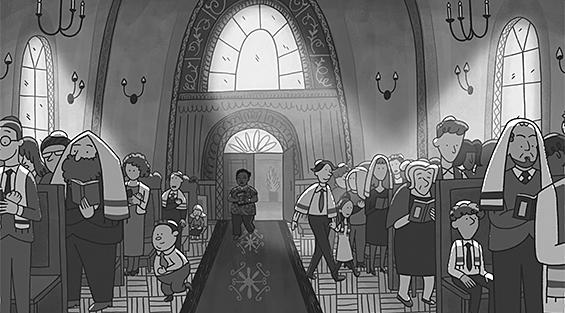
Enter Long Story Short, which is certainly the most Jewish television show airing right now on any mainstream platform and also, very likely, among the most authentic pieces of Jewish American narrative art in the 21st century. And it is very funny. There are moments of satire, in particular a riotously funny send-up of bar mitzvah candle-lighting ceremonies in the opening episode. But unlike most other shows of its ilk, Judaism and the Jewish characters that populate the story (which is all of them, more or less) aren’t the joke. They are simply the reality, the context in which tragedy transforms itself into farce and farce, in turn, transforms itself into tragedy again.
And, though it might seem like a surprising thing to say about an animated series, it presents that reality with unflinching, almost documentary-like precision. Some examples:
An unnamed character in the Ashamnu scene appears in a full tallit (no church-style stole, like the one worn by Rabbi Noah Roklov in Nobody Wants This) and, when asked by a main character if he knows of “a guy named Noah here,” replies dryly, but not unkindly, “There are probably like 50 Noahs in here.”
An old woman, also in a tallit, next to whom the main character takes a seat, explains lovingly that Jews confess in plural language.
Why my family is giving up
JTA
Despite the near-constant worry over, well, nearly everything, but especially our family’s finances, my mother always made sure my brother and I had brand-new outfits on Rosh Hashanah. The shopping for the outfits was one major way my mother showed love. I have strong, happy memories of being with her in the changing room of bargain basements like Ross or TJ Maxx. I never felt so loved or taken care of in my whole life as when she helped me assess each item and took the “yes” pile to the cash register.
This year, my mother died. She declined rapidly with a type of dementia that robbed her first of the ability to speak and then after of the ability to do pretty much everything else. This Rosh Hashanah, I will still be in the traditional year of Jewish mourning mandated by the Biblical commandment to honor your mother and father.
And so buying my own children new outfits to mark the new year might make a fitting tribute. But instead, my family and I are continuing a Rosh Hashanah tradition of our own, taking on a new habit meant to bring us closer together and put our values into practice. And this year we are committing to buying, if not nothing at all, then far, far less.
My family lives now, as we have for the last three years, in the Main Line suburbs of Philadelphia. We are some of the luckiest people in the world. We own our own home and it has a basement and a sunroom and a backyard and lots of closets. And it is full of stuff. So much stuff. Where does it all even come from? You know how it is. Oneclick shopping when the mood strikes. Instagram ads for that perfect item. Trips to Target and Whole Foods with my kids would be cheaper if I hired a babysitter with the tax it feels like I have to pay to get them in and out of the store. Sometimes out of nowhere my son will scream, “I want something new!” He’s right. Sometimes I just want to scream it, too. It’s an itchy and uncomfortable feeling stoked constantly by social media and it is soothed almost immediately by shopping. And yet as I have learned in my grief, the relief is only temporary. After it passes, I am still holding all of the bags, of my grief, my impulsiveness, my worry, my feelings that I want to be enough just as I am and of the fast-fashion, impulse purchases I’ve accumulated along the way.
The High Holidays are an ideal time to turn intentions into plans. We are literally commanded to just show up, to stand before God and our community and take account, not of what
The episode that is largely devoted to parents trying to decide whether or not to send their children to a Jewish day school.
The moment when an adult child, faced with a sibling’s increasing observance, tells their mother that there is no one right way to be Jewish, and the mother responds immediately (and I quote) with, “But there is — a progressive egalitarian Conservative Judaism with an emphasis on ritual and community over faith and blind practice. That’s literally the only way it makes sense. I figured it out. And I gave it to my children because I love them. But they reject it because they want to reject me.”
These examples — one of a vast number that I could recite — all speak to a core aspect of why I found the show so moving on Selichot night and why it is so wildly successful overall, both narratively and aesthetically. It’s packed with so many highly specific Jewish cultural and religious touchstones — not to mention untranslated and unexplained Hebrew phrases — that I suspect, absent a solid day-school education (Bob-Waksberg, the son of a Jewish educator, had one), aspects of it would seem abstruse if not unintelligible. It’s all so ardently, shockingly particularist, which is a crucial element of faithfully rendering any culture and something that I think about a lot, both as novelist and as a rabbi.
As Jews in America, most of us, either through osmosis or because we seek it out, come to know a great deal about the majority cultures that surround us. They know less about us. That has always been — and will always be — a structural aspect of minority experience. That is why it is an ongoing challenge, in many corners of the entertainment industry, to tell stories from the particularist perspectives of minority and under-represented groups. It’s a worthy, important goal, both ethically (because it’s the right thing to do) and aesthetically (because stories absent culture are bland).
But despite all the laudable effort towards diversifying the kinds of American stories we tell, I have never seen a show that depicts a Jewish American reality that is recognizable to me — hilarious, unabridged, profound and reverent. Until now.
Representation matters. Do yourself a favor and start binging.
Rabbi Benjamin Resnick is rabbi of the Pelham Jewish Center in Pelham, New York, and the author of the novel Next Stop.
The views and opinions expressed in this article are those of the author and do not necessarily reflect the views of JTA or its parent company, 70 Faces Media.
we’ve spent, but of how we’ve spent our days. Not of what we own, but of who we are. We pray and sing in community and ask God for the one thing money cannot ever buy, more time. A few years ago, my husband, who is a rabbi, gave up eating meat in honor of the shemitah year (the year after seven that we let the earth lie fallow), in a sermon on Rosh Hashanah in front of his whole congregation. I like eating meat, by the way. But he hasn’t gone back and neither have our children. Last year, we zeroed out the daily, casual usage of screens: no TV, no video games, no iPad or phone, nothing except the occasional family movie as a very rare treat. To say it has been lifechanging is an understatement.

Our family’s new plan has three parts. First, we’re adding “reduce” and “reuse” to our recycling practices. We will articulate the difference between needs and wants and save our wants for special occasions like birthdays and Hanukkah. I’m not canceling Hanukkah, because I am not a monster. We’ll just slow ourselves down to really reflect on what we need before we buy. And we’ll demonstrate some degree of vulnerability to ask our community first if they have something we’re looking for — and give back when, as we hope, our community reciprocates. Second, we’ll seek out wisdom from our rich tradition. Jewish sources offer guidance, values and morals on the balance between materialism and meaningful choices. The rabbis themselves wrote blessings for new clothes. They knew how awesome it feels to get something new. But these sources will also give us the story we need to be telling ourselves about who we are and what we are meant to do on this earth with our limited time, money and energy and while we have a lot to learn, we’re pretty sure no answer will be to go shopping.
And third, I’m going to take a hard look at the role Jewish women play in American consumer culture (and the impact
American consumer culture has had on the identity of Jewish women). Did my mom and her working-class mother of immigrant parents even stand a chance? Our people came from Eastern Europe with nothing and made it in America, to the land of opportunity. Why shouldn’t they take their hard-won affluence to Loehmann’s? I’m going to speak to American Jewish historians and ask them: How do we create a cultural legacy for Jewish women that isn’t one of materialistic, spoiled princesses or the opposite, that being a woman fundamentally means you are never enough as you are and true personal satisfaction is just one purchase away?
This won’t be easy. Our culture is against us, and the memory of my mother in that dressing room is strong. In fact, one of the first indicators of my mother’s mental decline was that she would buy clothing in wildly wrong sizes for her grandchildren. After she died, my daughter, now 5, found a gymnastics outfit with tags on it in her closet, brand new and still a bit too large for her. “Who bought this for me?” she asked. Even from the grave, Savta is still spoiling us with new things.
I inherited this love language from my mother, of shopping for the perfect item to lift the mood or brighten the day of the people I love. And I don’t want to forget it. But I want my children to speak other languages, too, ones drawn from the values of their faith, ones that fight for the planet they will need to survive, and ones still forming in my heart and theirs. I want them to hear love in many different ways, the ways we show up for each other as a family and let others in our community show up for us, the ways we lavish attention and time as the real present, the ways we slow down for each other and not try to occupy or fill our days, but to treasure and savor them. I think one day, when I’m gone, I hope they remember me for that. And until then, I will embrace the rhythm of Rosh Hashanah and the way that the Jewish calendar invites us to put down all of the bags we’ve been carrying, even if they’re just from TJ Maxx, and approach God, our communities and ourselves, just as we already are.
Erin Beser is an educator who teaches Jewish studies at the Jack M. Barrack Hebrew Academy and is the founder and CEO of Adoughma Dough Play Events, an educational initiative working to bring dough and sensory play into Jewish educational and communal spaces. She lives with her family on Philadelphia’s Main line. The views and opinions expressed in this article are those of the author and do not necessarily reflect the views of JTA or its parent company, 70 Faces Media.
B’NAI ISRAEL SYNAGOGUE
618 Mynster Street Council Bluffs, IA 51503-0766
712.322.4705 www.cblhs.org
BETH EL SYNAGOGUE
Member of United Synagogues of Conservative Judaism 14506 California Street Omaha, NE 68154-1980
402.492.8550 bethel-omaha.org
BETH ISRAEL
SYNAGOGUE
Member of Union of Orthodox Jewish Congregations of America 12604 Pacific Street Omaha, NE. 68154
402.556.6288 BethIsrael@OrthodoxOmaha.org
CHABAD HOUSE
An Affiliate of Chabad-Lubavitch 1866 South 120 Street Omaha, NE 68144-1646
402.330.1800 OChabad.com email: chabad@aol.com
LINCOLN JEWISH COMMUNITY:
B’NAI JESHURUN
South Street Temple
Union for Reform Judaism
2061 South 20th Street Lincoln, NE 68502-2797
402.435.8004 www.southstreettemple.org
OFFUTT AIR
FORCE BASE
Capehart Chapel 2500 Capehart Road Offutt AFB, NE 68123
402.294.6244 email: oafbjsll@icloud.com
TEMPLE ISRAEL
Union for Reform Judaism (URJ) 13111 Sterling Ridge Drive Omaha, NE 68144-1206
402.556.6536 templeisraelomaha.com
LINCOLN JEWISH COMMUNITY:
TIFERETH ISRAEL
Member of United Synagogue of Conservative Judaism 3219 Sheridan Boulevard Lincoln, NE 68502-5236 402.423.8569 tiferethisraellincoln.org
WEDNESDAY, Oct. 1: Erev Yom Kippur (Kol Nidre) Evening Service, 7:30 p.m. with guest speaker, Jim Fried.
THURSDAY, Oct. 2: Yom Kippur Morning Service, 10:30 a.m. with guest speaker, Harmon Maples from ADL; Yom Kippur Neilah, 5 p.m. Break the fast with B'nai Israel!
Monthly Speaker Series Service, Friday, Oct. 10, 7:30 p.m. with our guest speaker. Our service leader is Larry Blass. Everyone is always welcome at B’nai Israel!
For information about our historic synagogue, please visit our website at www.cblhs.org or contact any of our other board members: David Alloy, Renee Corcoran, Rick Katelman, Gail Kenkel, Janie Kulakofsky, Howard Kutler, Ann Moshman, Mary-Beth Muskin, Debbie Salomon and Sissy Silber. Handicap Accessible.
Services conducted by Rabbi Steven Abraham and Hazzan Michael Krausman.
IN-PERSON AND ZOOM MINYAN SCHEDULE: Mornings on Sundays, 9:30 a.m.; Mondays and Thursdays, 7 a.m.; Evenings on Sunday-Thursday, 5:30 p.m.
FRIDAY: Nebraska AIDS Project Lunch, 11:30 a.m.: Kabbalat Shabbat, 6 p.m. at Beth El & Live Stream.
SATURDAY: Simcha Shabbat, 10 a.m. at Beth El and Live Stream; Havdalah, 7:45 p.m. Zoom Only.
SUNDAY: Sukkah Build, 8 a.m.; Morning Minyan, 9 a.m. Zoom Only.
MONDAY: Journey Through Grief, 4 p.m. with Wendy Hill.
WEDNESDAY: Kol Nidre, 6:30 p.m. at Beth El & Live Stream.
THURSDAY: Yom Kippur Family Service, 9 a.m.; Yom Kippur Morning Service, 9:30 a.m.; Yom Kippur Youth Programming, 10 a.m.;Yom Kippur Study Sessions 3:30 p.m. with Rabbi Abraham; Mincha/Ne’ila, 5:30 p.m.; Community Break Fast, 7:45 p.m.
FRIDAY-Oct. 3: Kabbalat Shabbat, 6 p.m. at Beth El & Live Stream.
SATURDAY-Oct. 4: Shabbat Morning Service, 10 a.m. at Beth El and Live Stream; Jr. Congregation (Grades K-12), 10 a.m.; Kiddush sponsored by the Krausmans following Shabbat Morning Services: Havdalah, 7:35 p.m. Zoom Only. Please visit bethel-omaha.org for additional information and service links.
FRIDAY: Selichot, 6:40 a.m.; Nach Yomi, 6:45 a.m.; Shacharit, 7 a.m.; Mincha/Kabbalat Shabbat/Candlelighting, 6:57 p.m.
SATURDAY: Shabbat Kollel, 8:30 a.m.; Shacharit, 9
a.m.; Tot Shabbat, 10:30 a.m.; Youth Class, 10:45
a.m.; Soulful Torah, 5:55 p.m. with Rabbi Geiger; Mincha, 6:40 p.m.; Kids Activity/Laws of Shabbos, 7:10 p.m.; Havdalah, 7:55 p.m.
SUNDAY: Shacharit 9 a.m.; Mincha/Ma’ariv 7 p.m.
MONDAY: Selichot, 6:40 a.m.; Nach Yomi, 6:45 a.m.; Shacharit, 7 a.m.; Mincha/Ma’ariv 7 p.m.
TUESDAY: Selichot, 6:40 a.m.; Nach Yomi, 6:45 a.m.; Shacharit, 7 a.m.; Mincha/Ma’ariv, 7 p.m.
WEDNESDAY: Erev Yom Kippur; Nach Yomi, 6:45 a.m.; Shacharit, 7 a.m.; Mincha, 5 p.m.; Candelighting/Fast Begins 6:45 p.m.; Kol Nidre/Ma’ariv 6:45 p.m.
THURSDAY: Office Closed for Yom Kippur; Shacharit, 9 a.m.; Yizkor, 10:45 a.m.; Musaf, 11 a.m.; Neilah Class, 5 p.m.; Mincha, 5:30 p.m.; Neilah, 6:30 p.m.; Ma’ariv/Havdalah/Break Fast, 7:45 p.m.
FRIDAY-Oct. 3: Nach Yomi, 6:45 a.m.; Shacharit, 7 a.m.; Mincha/Kabbalat Shabbat/Candlelighting, 6:45
p.m.
SATURDAY-Oct. 4: Shabbat Kollel, 8:30 a.m.; Shacharit, 9 a.m.; Tot Shabbat, 10:30 a.m.; Youth Class 10:45 a.m.; Soulful Torah, 5:45 p.m. with Rabbi Geiger; Mincha, 6:30 p.m.; Kids Activity/Laws of Shabbos 7 p.m.; Havdalah, 7:43 p.m.
Please visit orthodoxomaha.org for additional information and Zoom service links.
Join classes via Zoom. Go to ochabad.com/academy. For more information or to request help, please visit www.ochabad.com or call the office at 402.330.1800.
FRIDAY: Shacharit, 8 a.m.; Lechayim, 5:30 p.m., go to ochabad.com/lechayim to join; Candlelighting, 6:56 p.m.
SATURDAY: Shacharit, 10 a.m. followed by Kiddush and Cholent; Shabbat Ends, 7:53 p.m.
SUNDAY: Sunday Morning Wraps, 9 a.m.
MONDAY: Shacharit 8 a.m.; Personal Parsha 9:30 a.m. with Shani Katzman; Intermediate Biblical Hebrew Grammar, 10:30 a.m. with David Cohen; Parsha Reading, 6 p.m. with David Cohen; Translating Words of Prayer, 7 p.m. with David Cohen.
TUESDAY: Shacharit, 8 a.m.; Aramaic Grammar, 10 a.m. with David Cohen; Intermediate Biblical Hebrew Grammar, 6 p.m. with David Cohen; Introductory Biblical Hebrew Grammar, 7 p.m. with David Cohen
WEDNESDAY: Shacharit 8 a.m.; Introductory Biblical Hebrew Grammar, 10:30 a.m. with David Cohen; Parsha Reading, 11:30 a.m. with David Cohen; Kol Nidre, 6 p.m.; Candlelighting, 6:47 p.m.
THURSDAY: Morning Services, 9 a.m.; Yom Kippuer Services and Yizkor in One Hour, 11 a.m.; Maftir Yona and Neila, 5:30 p.m.; Holiday Ends, 7:44 p.m.
FRIDAY-Oct. 3: Shacharit 8 a.m.; Lechayim, 5:30 p.m., go to ochabad.com/lechayim to join; Young Professionals’ Shabbat Dinner, RSVP at ochabad. com/CYP; Candlelighting, 6:44 p.m.
SATURDAY-Oct. 4: Shacharit, 10 a.m. followed by Kiddush and Cholent; Shabbat Ends, 7:41 p.m.
LINCOLN JEWISH COMMUNITY: B’NAI JESHURUN & TIFERETH ISRAEL
Services facilitated by Rabbi Alex Felch. All services offered in-person with live-stream or teleconferencing options.
FRIDAY: Kabbalat Shabbat Service, 6:30-7:30 p.m. led by Rabbi Alex at SST; Shabbat Candlelighting, 6:59 p.m.
SATURDAY: Shabbat Service , 9:30-11 a.m. led by Rabbi Alex at TI; Torah Study, noon on Parashat Vayelech; Havdalah, 7:55 p.m.
SUNDAY: LJCS Classes, 9:30 a.m. at TI; Men’s Bike/Coffee Group, 10:30 a.m. at The Mill Coffee & Bistro, 2021 Transformation Dr #1350, Lincoln. For more information or questions please email Al Weiss at albertw801@ gmail.com; LJCS Family Education, 11 a.m.; We can do this - Feed the Children, 11:30 a.m.1:15 p.m. at Belmont Community Center
TUESDAY: Ladies' Lunch, 1-2 p.m. Locations are decided upon at each lunch for the following month. For more information, please email Barbara Barron at oohhmmm.barb@gmail.com
WEDNESDAY: Men’s Lunch Group, 12:15 p.m. at Horisun Hospice, 8055 O St #300, Lincoln. We meet in the conference room. Bring your own lunch and beverage. For more information, contact Albert Weiss at albertw801@gmail.com; No LJCS Hebrew School this week; Kol Nidre (Yom Kippur Evening) Joint Service, 7–8:30 p.m. led by Rabbi Alex at SST.
THURSDAY: Offices Closed; Yom Kippur Joint Children Service, 9 a.m. led by Rabbi Alex at TI; Yom Kip-
“The Sea” is Israel’s Oscar entry
PHILISSA CRAMER
JTA
Israel’s culture minister says he will eliminate funding to the country’s version of the Oscars after a drama about a Palestinian boy won the top prize on Sept. 16.
The Sea won the Ophir Award for best film during a ceremony in Tel Aviv where speakers condemned the ongoing war in Gaza and lamented the growing Hollywood boycott against Israeli film institutions. The Arabic-language drama becomes Israel’s automatic best international feature entry to next year’s Academy Awards. It was produced with support from the Israel
Film Fund, a public fund that is required to support artists without regard to their politics. A spokesperson for Film Workers for Palestine, the group behind the new boycott, told Variety this week that the Israel Film Fund meets its threshold for complicity.
The group’s pledge, which has drawn more than 4,500 signatures, names the Jerusalem Film Festival, where The Sea premiered in August, as among the institutions to boycott. It does not specifically name the Ophir Awards, but they have long benefitted from government funding.
Now, Culture Minister Miki Zohar says he will cut the Ophirs off starting next year, saying in a
pur Morning Service, 9:30 a.m. led by Rabbi Alex at TI; Yom Kippur Morning, 10 a.m. lay led at SST; Yom Kippur Afternoon Service, 3 p.m. led by Rabbi Alex at SST; Yizkor, 4 p.m. led by Rabbi Alex at SST; Neilah, Yom Kippur Havdalah, Break the Fast, 5 p.m. lay led at SST; Yom Kippur Afternoon Mincha/Neilah/ Ma’ariv/Havdalah/Break the Fast 5:45 p.m. at TI.
FRIDAY-Oct. 3: Kabbalat Shabbat Service, 6:307:30 p.m. led by Rabbi Alex at SST; Shabbat Candlelighting, 6:47 p.m.
SATURDAY-Oct. 4: Shabbat Service , 9:30-11 a.m. led by Rabbi Alex at TI; Torah Study noon on Parashat Haazinu; Havdalah, 7:44 p.m.
OFFUTT AIR FORCE BASE
FRIDAYS: Virtual Shabbat Service, 7:30 p.m. every first and third of the month at Capehart Chapel. Contact TSgt Jason Rife at OAFBJSLL@icloud.com for more information.
In-person and virtual services conducted by Rabbi Benjamin Sharff, Rabbi Deana Sussman Berezin, and Cantor Joanna Alexander.
FRIDAY: Drop-In Mah Jongg, 9 a.m. In-Person; Village Walking Group, 10 a.m. In-Person; Bring Your Own Picnic, 5 p.m. at Gene Leahy Mall —In-Person; Shabbat Shuva Service and Tashlich, 6 p.m. at Gene Leahy Mall — In-Person
SATURDAY: Torah Study, 9:15 a.m. In-Person & Zoom; Shabbat Morning Service, 10:30 a.m. In-Person & Zoom.
SUNDAY: Grades PreK-7, 9:30 a.m. In-Person; Temple Tots, 10:45 a.m. In-Person; Kol Rina Rehearsal, 12:30 p.m.
MONDAY: Erev Rosh Hashanah Service, 7:30 p.m. In-Person & Zoom.
TUESDAY: Kol Rina Rehearsal, 6 p.m. In-Person.
WEDNESDAY: Yarn It, 9 a.m. In-Person; Kol Nidre Service, 7:30 p.m. In-Person & Zoom.
THURSDAY: Tot Yom Kippur Service, 9 a.m. In-Person; Sitter Service, 10 a.m. In-Person; Yom Kippur Morning Service, 10:30 a.m. In-Person & Zoom; Youth Programming, 10:30 a.m. In-Person; Feeding the Hungry: Food Packing, 12:15 p.m. In-Person; Ask Rabbi Sharff, 1:45 p.m. In-Person & Zoom; A Service of Healing, 3 p.m. In-Person & Zoom; Text Study with Rabbi Sharff, 3 p.m. In-Person; Yizkor, 4:15 p.m. InPerson & Zoom; N’ilah, 5 p.m. In-Person & Zoom; Break the Fast, 6 p.m. In-Person.
FRIDAY-Oct. 3: Drop-In Mah Jongg, 9 a.m. In-Person; Village Walking Group, 10 a.m. In-Person; Shabbat Service with Grade 1, 6 p.m. In-Person & Zoom SATURDAY-Oct. 4: Torah Study, 9:15 a.m. In-Person & Zoom; Shabbat Morning Service, 10:30 a.m. InPerson & Zoom.
Please visit templeisraelomaha.com for additional information and Zoom service links.
Sunday, Sept. 28
Temple Israel Cemetery, 6412 N. 42nd St., 1 p.m. Oak Hills/Bikhor Cholim, Council Bluffs, 11 a.m.
UPDATED OBITUARY CHANGES
As of July 1, 2025, Obituaries in the Jewish Press are free of charge.
For questions, please email avandekamp@ jewishomaha.org. Obituaries in the Jewish Press are included in our print edition as well as our website at www.omahajewishpress.com
statement that the winning film “defames our heroic soldiers while they fight to protect us” and calling the awards ceremony “shameful.”
The festival’s director, Assaf Amir, said in a statement that he was pleased that “The Sea” would represent Israel at the Oscars, where no Israeli film has ever won best international feature. (Last year’s best documentary award went to No Other Land, a joint Israeli-Palestinian production about Israel’s treatment of West Bank Palestinians that also ignited scorn from Israeli government officials; this year’s documentary Ophir winner, Letter to David, is about the hostage David Cunio, himself a past film worker.)
ARI SAMUEL CANFIELD
Rachel and Dan Canfield announce the Aug. 18, 2025, birth of their son, Ari Samuel.
Ari is named after his two great-grandfathers, Phil Sokolof and Robert Javitch. He is also named after Ariel Bibas, the 4-year old tragically murdered by Hamas on Oct. 7.
He has a brother, Noah, who he shares his birthday with, and has two sisters, Ellie and Maya.
Grandparents are Karen and Gary Javitch of Omaha and Sandy and Rick Canfield of Scottsdale, AZ.
Great-grandparents are the late Phil and Ruth Sokolof, Bob and Millie Javitch, the late Irving and Faye Gendler and LeRoy and Anne Canfield.
ZEV REUBEN SCHWARTZ
Allison Willensky and Brian Schwartz of Austin, TX, announce the June 15, 2025, birth of their son, Zev Reuben.
He has a big sister, Jemma.
Grandparents are Andi and Donald Goldstein of Omaha; Judy and Ronnie Schwartz of Bradenton, FL; and Kitty and David Willensky of Palm Springs, CA.
Great-grandparents are Lenore and the late Irving Ross of Omaha.
Even though there is no food to be had on Yom Kippur, we still dress the table with a festive cloth and light candles before the onset of the holy day. We say two blessings on the candles: one for the candles, and the other, the Shehecheyanu blessing.
It is customary to bless one’s children before Yom Kippur begins.
The first prayer of Yom Kippur, known as Kol Nidre, is often thought of as the quintessential prayer of the day. In fact, it’s not even a prayer! It is simply a declaration that all our vows be considered null and void.
Yom Kippur is a day of unity, and forgiveness, and it is customary to wear white.
In our Sept. 12 edition, we inadvertently misspelled the last name of the Abramson family. The Jewish Press regrets these errors.
In our Rosh Hashanah edition, the names of Ari Kohen and Steven Wees were inadvertently left off the IHE advisory board list. The Jewish Press regrets the error.


GRACE GILSON
JTA
After studying the world’s oldest synagogue paintings for nearly a decade, Jill Joshowitz had accepted that she might never be able to stand before them as they remained locked away in Syria amid its civil war.
Jewish sites and synagogues suffered lootings and bombardment over the course of the war, which followed the emigration of virtually all Syrian Jews. Could the paintings have even survived?
“I spent almost a decade of my life researching and writing about these paintings, and because they were stored in Syria, I never thought that I would really have an opportunity in my lifetime, as a Jewish scholar and researcher, to see these paintings,” said Joshowitz, a historian of Jewish visual culture based in Pittsburgh.
“I didn’t really know what the status was. Obviously there was this horrific civil war, and so I really didn’t know what to expect,” she added. “Nobody in my social network knew anything about the fate, what had happened, to these paintings over the course of the Syrian civil war.”
On Sept. 15, Joshowitz learned the astonishing answer. Not only had the paintings survived, but they had been preserved in their original arrangement, the way they first appeared more than 1,700 years ago.
The answer was revealed when she arrived at the National Museum in Damascus alongside a delegation of Jewish scholars and leaders, in a trip made possible by the fall of the Bashar al-Assad regime. The Dura Europos synagogue was painted around 244 CE but was filled with dirt just a decade later by the Roman garrison stationed in the town along the Euphrates to help fortify the city ahead of an invasion.
Read more at www.omahajewishpress.com





CLASSIFIED ADVERTISING works! Place your 25 word ad into thousands of Nebraska homes for $225. Contact the Jewish Press or call 1-800-369-2850.
HELLO NEBRASKA! Introducing www.nepublicnotices.com, a new public notice website presented as a public service by all Nebraska newspapers. Free access, fully searchable – because democracy depends upon open government and your right to know.
BANKRUPTCY RELIEF! Help stop Creditor Harassment, Collection Calls, Repossession and Legal Actions! Speak to a Professional Attorney and Get the Help You NEED! Call NOW 844-215-3629
AFFORDABLE PRESS Release service. Send your message to 155 newspapers across Nebraska for one low price! Call 1-800369-2850 or www.nebpress.com for more details.
ANNOUNCEMENT
IF YOU HAD KNEE OR HIP REPLACEMENT SURGERY and suffered an infection between 2022 and the present time, you may be entitled to compensation. Call Attorney Charles H. Johnson 1-800-535-5727
DOES YOUR basement or crawl space need some attention? Call Thrasher Foundation Repair! A permanent solution for waterproofing, failing foundations, sinking concrete and nasty crawl spaces. FREE Inspection & Same Day Estimate. $250 off ANY project with code GET250. Call 1-844-958-3431
REPLACE YOUR roof with the best looking and longest lasting material steel from Erie Metal Roofs! Three styles and multiple colors available. Guaranteed to last a lifetime! Limited Time Offer up to 50% off installation + Additional 10% off install (for military, health workers & 1st responders.) Call Erie Metal Roofs: 1-888316-7713

THE BATHROOM of your dreams in as little as 1 day. Limited Time Offer - $1000 off or No Payments and No Interest for 18 months for customers who qualify. BCI Bath & Shower. Many options available. Quality materials & professional installation. Senior & Military Discounts Available. Call Today! 1-855-451-2244
SERVICES - PUBLISHING
BECOME A Published Author. We want to Read Your Book! Dorrance Publishing-Trusted by Authors Since 1920 Book manuscript submissions currently being reviewed. Comprehensive Services: Consultation, Production, Promotion and Distribution Call for Your Free Author`s Guide 1-877-858-2822 or visit dor-


On Oct. 16 from 11:30 a.m.-1 p.m. on Zoom, Micah Huyser will be the featured speaker at the Institute of Holocaust Education’s Lunch and Learn. Huyser is the Executive Director of the Nebraska Prairie Museum. In collaboration, the Nebraska Jewish Historical Society will show paintings from the Nebraska Prairie Museum in the JCC Eisenberg Gallery.

“Since taking on the role in 2019,” IHE Executive Director Scott Littky said, “he has continued to lead and transform the museum into a regional leader in exhibits, research, community outreach, and in advancing the mission of the Phelps County Historical Society.” Huyser also serves as Vice President of the Nebraska Museums Association and sits on the board of the Mountain Plains Museum Association. He lives in Holdrege, Nebraska, with his wife, Cindy, and their son, Rowen. He en-
joys representing and sharing the rich history and culture of their community.
In his presentation, Huyser will discuss the life and paintings of Thomas Naegele, who fled Nazi Germany in 1938 when he was just 14 years old. A few years after settling in New York with his family, he was drafted into the U.S. Army. He was eventually assigned to Internment Camp Indianola in Nebraska, where he served as an interpreter.
“In Nebraska, two main POW camps were established: Camp Atlanta and Camp Indianola,” Huyser said. “Each of these camps housed over 6,000 POWs. In addition to these primary camps, there were eighteen satellite camps located throughout Nebraska and northern Kansas. Altogether, the system housed up to 12,000 German POWs at one time.
“One consistent aspect of every war in human history is the logistics surrounding prisoners of war (POWs). World War II was no exception. English and French POW camps were inundated with captured Germans, Czechs, Austrians, and other Axis soldiers. Once the United States entered the war, ships carrying POWs began arriving on American shores. Nearly
400,000 German POWs were placed in camps rapidly constructed by the Army Corps of Engineers. These camps were spread across 46 of the 48 contiguous U.S. states.”
During his free time, Thomas Naegele painted what he saw.
“After the war, his paintings were stored away and forgotten, “tossed in a closet,” as he put it,” Huyser said, “until he began reflecting on his time there. Inspired by the 50th anniversary of World War II, Thomas resumed painting. One piece after another, he eventually created a collection of unique yet cohesive works that filled an entire gallery.
This gallery was later exhibited at the Metropolitan Museum of Art and eventually found a permanent home at the Nebraska Prairie Museum.”
We hope you will join the Zoom to hear Micah Huyser’s presentation, and come view the NJHS exhibit in the Eisenberg Gallery. For the Zoom link and to get more information about the presentation, please contact Scott Littky at slittky@ihene.org; for information about the Gallery exhibit, please reach out to Jane Rips at jrips@jewishomaha.org.

